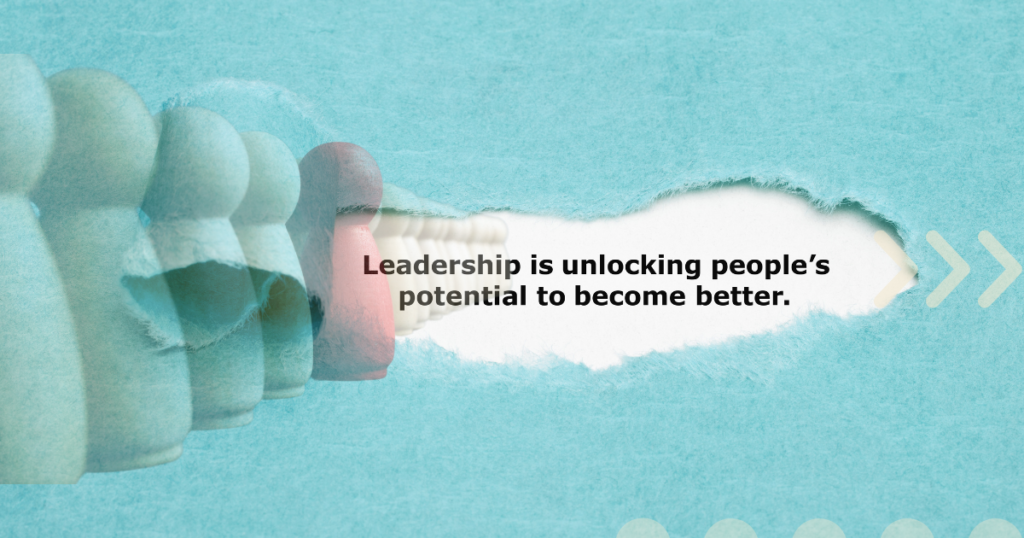In today’s rapidly evolving work environment, employers are placing increasing importance on soft skills alongside technical proficiency. McKinsey Global Survey reveals that the most important skills to develop is social and emotional in nature. The demand for freelancers with a well-rounded skill set that includes effective communication, problem-solving, emotional intelligence, adaptability, teamwork, leadership, and resilience is on the rise.
These key soft skills are essential for navigating complex work scenarios, fostering positive relationships, overcoming challenges, and delivering exceptional results. By mastering these skills, freelancers become invaluable assets, boosting their career prospects and ensuring long-term success in the competitive job market of 2024 and beyond.
Contents
1. Adaptability
In a world marked by constant change, the ability to adapt quickly is a prized soft skill. Employers seek freelancers who can navigate uncertainty with ease, embrace new technologies, and pivot when necessary. Being adaptable ensures you remain relevant and valuable in an ever-shifting professional environment.
Tips to Develop Adaptability
- Embrace Change: Instead of resisting change, actively embrace it as an opportunity for growth and learning. Cultivate a mindset that views change as a natural and necessary part of life.
- Seek New Experiences: Step out of your comfort zone and expose yourself to new situations and challenges. Whether it’s trying a new hobby, traveling to unfamiliar places, or taking on different roles at work, seeking new experiences helps build adaptability.
- Practice Flexibility: Learn to adapt to unexpected circumstances by practicing flexibility in your daily life. This could involve adjusting your plans, priorities, or strategies in response to changing conditions or feedback.
Where to Learn Adaptability

1. Books
- “Mindset: The New Psychology of Success” by Carol S. Dweck
- “The Obstacle Is the Way: The Timeless Art of Turning Trials into Triumph” by Ryan Holiday
- “Grit: The Power of Passion and Perseverance” by Angela Duckworth
2. Podcasts
- “The Tim Ferriss Show” – Hosted by Tim Ferriss, this podcast features interviews with successful individuals who share insights on resilience, adaptability, and overcoming challenges.
- “The Marie Forleo Podcast” – Marie Forleo offers practical advice and inspiration on personal development, entrepreneurship, and navigating change.
- “The Art of Charm” – This podcast covers topics related to personal growth, social dynamics, and adaptability in various aspects of life and work.


3. Websites
- Harvard Business Review – Offers articles and resources on leadership, resilience, and adapting to change in the workplace.
- Forbes – Offers insights and articles on adaptability in the workplace, including strategies for embracing change, staying agile, and thriving in dynamic environments.
- TED Talks – Features talks by thought leaders and experts on topics such as resilience, change management, and embracing uncertainty.
2. Emotional Intelligence
The importance of emotional intelligence continues to grow. This skill involves understanding and managing your emotions effectively while also navigating the emotions of those around you. Freelancers with high emotional intelligence excel in interpersonal relationships, communication, and conflict resolution, contributing to a positive and collaborative remote workplace.
Tips to Develop Emotional Intelligence
- Self-awareness: Take time to reflect on your emotions, thoughts, and reactions in different situations. Practice mindfulness techniques to become more aware of your emotional state and triggers.
- Self-regulation: Learn to manage your emotions effectively by practicing techniques such as deep breathing, meditation, or journaling. Develop strategies to stay calm and composed, even in challenging or stressful situations.
- Empathy: Cultivate empathy by actively listening to others, seeking to understand their perspective, and acknowledging their emotions. Practice putting yourself in someone else’s shoes and considering how they might be feeling.
Where to Learn Emotional Intelligence
1. Books
- “Emotional Intelligence 2.0” by Travis Bradberry and Jean Greaves
- “Emotional Intelligence: Why It Can Matter More Than IQ” by Daniel Goleman
- “The Language of Emotions: What Your Feelings Are Trying to Tell You” by Karla McLaren
2. Podcasts
- “The Science of Happiness” – Produced by the Greater Good Science Center at UC Berkeley, this podcast explores research-based strategies for cultivating emotional well-being and resilience.
- “The Mindful Kind” – Hosted by psychologist Rachael Kable, this podcast offers practical tips and insights on mindfulness, self-awareness, and emotional regulation.
- “Feel Better, Live More” – Dr. Rangan Chatterjee shares evidence-based advice on improving physical and emotional health, with episodes covering topics like stress management and emotional intelligence.
3. Websites
- Greater Good Magazine – Offers articles, videos, and resources on emotional intelligence, mindfulness, and positive psychology.
- Psychology Today – Provides insights from experts on emotional intelligence, self-awareness, and strategies for enhancing emotional well-being.
- Emotional Intelligence Consortium – Offers research articles, assessments, and resources related to emotional intelligence and its applications in various domains.

3. Critical Thinking
In a data-driven world, critical thinking remains a cornerstone skill. The ability to analyze information, solve problems, and make informed decisions is invaluable. Employers appreciate freelancers who can approach challenges with a logical and analytical mindset, fostering innovation and efficiency within the workplace.
Tips to Develop Critical Thinking
- Question assumptions: Challenge your own and others’ assumptions by asking probing questions. Encourage curiosity and skepticism to uncover underlying beliefs or biases.
- Gather information: Seek out diverse perspectives and reliable sources of information to gain a comprehensive understanding of a topic. Analyze data, evidence, and arguments critically to evaluate their validity and relevance.
- Analyze and evaluate: Break down complex problems or issues into smaller components and examine them systematically. Evaluate the strengths and weaknesses of different arguments or viewpoints to identify logical fallacies or inconsistencies.
Where to Learn Critical Thinking

1. Books
- “Critical Thinking: Tools for Taking Charge of Your Learning and Your Life” by Richard Paul and Linda Elder
- “The Demon-Haunted World: Science as a Candle in the Dark” by Carl Sagan
- “How to Think Like Leonardo da Vinci: Seven Steps to Genius Every Day” by Michael J. Gelb
2. Podcasts
- “The Critical Thinking Initiative Podcast” – Hosted by critical thinking expert Steven Schafersman, this podcast explores various aspects of critical thinking and its applications in everyday life.
- “You Are Not So Smart” – This podcast delves into the quirks of human psychology and cognitive biases, helping listeners develop a more critical and rational approach to decision-making.
- “Philosophize This!” – Provides an accessible introduction to philosophical ideas and critical thinking skills, with episodes covering a wide range of topics and historical figures.


3. Websites
- The Critical Thinking Community – Offers resources, articles, and exercises to improve critical thinking skills in education, business, and everyday life.
- The Foundation for Critical Thinking – Provides online courses, workshops, and educational materials aimed at fostering critical thinking skills in individuals and organizations.
- Coursera – Offers online courses on critical thinking from universities and institutions worldwide, providing opportunities for self-paced learning and skill development.
4. Collaboration and Teamwork
As workplaces become more interconnected, collaboration and teamwork take center stage. The ability to work harmoniously with diverse teams, contribute ideas, and leverage collective strengths is highly valued. Employers seek freelancers who can foster a positive team culture and drive projects to success through collaborative efforts.
Tips to Develop Collaboration and Teamwork
- Promote mutual respect and trust: Cultivate a culture of respect and trust where team members feel valued, supported, and empowered to contribute their ideas and perspectives without fear of judgment or reprisal.
- Embrace diversity and inclusion: Recognize and appreciate the unique backgrounds, experiences, and perspectives of team members. Foster an inclusive environment where everyone feels welcomed and valued, regardless of differences.
- Encourage collaboration and cooperation: Create opportunities for collaborative problem-solving, brainstorming sessions, and team-building activities. Encourage teamwork by recognizing and rewarding collective achievements and fostering a sense of camaraderie among team members.
Where to Learn Collaboration and Teamwork
1. Books
- “The Five Dysfunctions of a Team: A Leadership Fable” by Patrick Lencioni
- “Team of Teams: New Rules of Engagement for a Complex World” by General Stanley McChrystal
- “Crucial Conversations: Tools for Talking When Stakes Are High” by Kerry Patterson, Joseph Grenny, Ron McMillan, and Al Switzler
2. Podcasts
- “The Team Coaching Zone Podcast” – Explores topics related to team coaching, collaboration, and leadership development.
- “WorkLife with Adam Grant” – Organizational psychologist Adam Grant shares insights and stories about work and psychology, including episodes on teamwork and collaboration.
- “The Collaboration Superpowers Podcast” – Hosted by Lisette Sutherland, this podcast features interviews and discussions on remote work, virtual collaboration, and team productivity.
3. Websites
- MIT Sloan Management Review – Provides articles and research on effective teamwork, collaboration techniques, and team performance optimization.
- Trello Blog – Provides tips, case studies, and best practices for teamwork, project management, and collaboration.
- Atlassian Team Playbook – Offers guides, exercises, and tools for improving team collaboration, communication, and productivity.

5. Communication Skills
Clear and effective communication is timeless. In 2024, the ability to convey ideas succinctly, whether in written or verbal form, is crucial. Strong communicators can articulate complex concepts, collaborate seamlessly with team members, and ensure everyone is on the same page, contributing to a harmonious and productive work environment.
Tips to Develop Communication Skills
- Active listening: Practice active listening by paying full attention to what others are saying, empathizing with their perspective, and asking clarifying questions to ensure understanding.
- Seek feedback: Solicit feedback from others on your communication style and actively work on improving areas where you may need development. Act on constructive feedback to refine your communication skills over time.
- Adapt communication style: Tailor your communication style to suit the preferences and needs of your audience. Whether speaking with colleagues, clients, or stakeholders, adjust your approach to effectively convey your message and build rapport.
Where to Learn Communication Skills

1. Books
- “The Art of Communicating” by Thich Nhat Hanh
- “Crucial Conversations: Tools for Talking When Stakes Are High” by Kerry Patterson, Joseph Grenny, Ron McMillan, and Al Switzler
- “How to Win Friends and Influence People” by Dale Carnegie
2. Podcasts
- “The Communication Guys” – Hosted by communication experts Dr. Tim Muehlhoff and Dr. Todd V. Lewis, this podcast explores various aspects of effective communication in personal and professional contexts.
- “The Art of Charm” – Covers topics related to social skills, communication strategies, and personal development, providing actionable tips for improving communication effectiveness.
- “The Science of Success” – Explores the science behind success and personal development, including episodes on effective communication, persuasion, and influence techniques.


3. Websites
- Communication Skills Training – Offers online courses and resources focused on improving communication skills in various contexts, including public speaking, interpersonal communication, and presentation skills.
- MindTools – Provides articles, tools, and resources on communication skills, leadership development, and personal effectiveness, offering practical tips and techniques for effective communication.
- American Management Association (AMA) – Offers training programs, workshops, and resources on communication skills for professionals at all levels, helping individuals enhance their ability to communicate effectively in the workplace.
6. Leadership Skills
Leadership is not confined to managerial roles; it’s a skill that can be exhibited at all levels of an organization. In 2024, employers look for freelancers who can inspire and motivate others, take initiative, and lead by example. Leadership skills are essential for driving positive change and contributing to the overall success of a team or organization.
Tips to Develop Leadership Skills
- Lead by example: Demonstrate the behaviors and values you expect from others by modeling integrity, accountability, and professionalism in your actions and decisions.
- Delegate effectively: Practice delegating tasks and responsibilities to team members based on their strengths and capabilities. Provide clear instructions, set expectations, and offer support as needed to empower team members to succeed.
- Develop others: Invest in the growth and development of your team members by providing opportunities for learning, skill-building, and career advancement. Offer guidance, mentorship, and constructive feedback to help them reach their full potential.
Where to Learn Leadership Skills
1. Books
- “Leaders Eat Last: Why Some Teams Pull Together and Others Don’t” by Simon Sinek
- “The 21 Irrefutable Laws of Leadership: Follow Them and People Will Follow You” by John C. Maxwell
- “Dare to Lead: Brave Work. Tough Conversations. Whole Hearts.” by Brené Brown
2. Podcasts
- “The Leadership Podcast” – Hosted by experienced executives and leadership consultants, this podcast explores leadership topics such as decision-making, team dynamics, and organizational culture, offering practical advice and insights for leaders at all levels.
- “Leadership and Loyalty” – This podcast features interviews with top leaders and experts in various industries, covering topics such as authentic leadership, emotional intelligence, and leading through change, providing valuable perspectives and strategies for effective leadership.
- “The John Maxwell Leadership Podcast” – Hosted by leadership expert John Maxwell, this podcast offers practical leadership lessons, personal growth tips, and success strategies, drawing from Maxwell’s extensive experience and expertise in leadership development.
3. Websites
- Leadership Now – Provides articles, book reviews, and leadership development resources, offering practical insights and tools for aspiring and established leaders to enhance their skills and effectiveness.
- Center for Creative Leadership (CCL) – Provides leadership development programs, assessments, and research-based resources to help individuals and organizations cultivate effective leadership skills and drive business results.
- Forbes Leadership – Offers articles, interviews, and expert insights on leadership trends, challenges, and strategies, providing actionable advice for aspiring leaders and executives.

7. Resilience
The ability to bounce back from setbacks and challenges is a key soft skill in 2024. Resilient individuals maintain a positive attitude in the face of adversity, learn from failures, and continue to strive for success. Employers value resilience as it contributes to a workforce that can overcome obstacles and persevere in achieving goals.
Tips to Develop Resilience
- Cultivate a growth mindset: Embrace challenges as opportunities for growth and learning rather than viewing them as setbacks. Focus on what you can control and approach obstacles with optimism and determination.
- Practice self-care: Take care of your physical, emotional, and mental well-being by prioritizing activities that promote relaxation, stress management, and overall health. Establish healthy habits such as regular exercise, sufficient sleep, and mindfulness practices.
- Learn from setbacks: View setbacks and failures as valuable learning experiences rather than reasons to give up. Reflect on what went wrong, identify lessons learned, and use them to inform your approach moving forward. Maintain a growth-oriented mindset and remain resilient in the face of adversity.
Where to Learn Resilience

1. Books
- “Option B: Facing Adversity, Building Resilience, and Finding Joy” by Sheryl Sandberg and Adam Grant
- “Resilient: How to Grow an Unshakable Core of Calm, Strength, and Happiness” by Rick Hanson
- “The Resilience Factor: 7 Keys to Finding Your Inner Strength and Overcoming Life’s Hurdles” by Karen Reivich and Andrew Shatte
2. Podcasts
- “The Resilience Toolkit Podcast” – Hosted by resilience experts, this podcast offers practical tips, stories, and interviews to help listeners cultivate resilience in their personal and professional lives.
- “Ten Percent Happier with Dan Harris” – This podcast explores mindfulness and meditation practices to build resilience, manage stress, and enhance well-being, featuring interviews with experts and practitioners in the field.
- “The Unbreakable Mindset Podcast” – Focuses on mental toughness, resilience, and overcoming challenges, providing actionable strategies and insights to develop a resilient mindset.


3. Websites
- Mayo Clinic – Offers information and tips on resilience-building techniques, stress management, and maintaining mental health.
- American Psychological Association (APA) – Offers resources, articles, and self-help tools on resilience, stress management, and coping strategies, based on psychological research and expertise.
- The Resilience Institute – Provides resilience training programs, articles, and tools for individuals and organizations to enhance resilience, adaptability, and performance in the face of challenges.
In conclusion, the exploration of essential soft skills for success in 2024 underscores their significance in fostering collaboration and resilience in the workplace. Developing these skills is vital for staying relevant in a changing professional landscape. Moreover, embracing opportunities to enhance these skills is crucial for personal and professional growth, ultimately setting a freelancer apart in a competitive environment.


Pingback: 7 Benefits of e-Reader to Your Mind and Body • WEBCIRE
Pingback: 7 Clever Ways Freelance Professionals Do To Secure Promotion • WEBCIRE